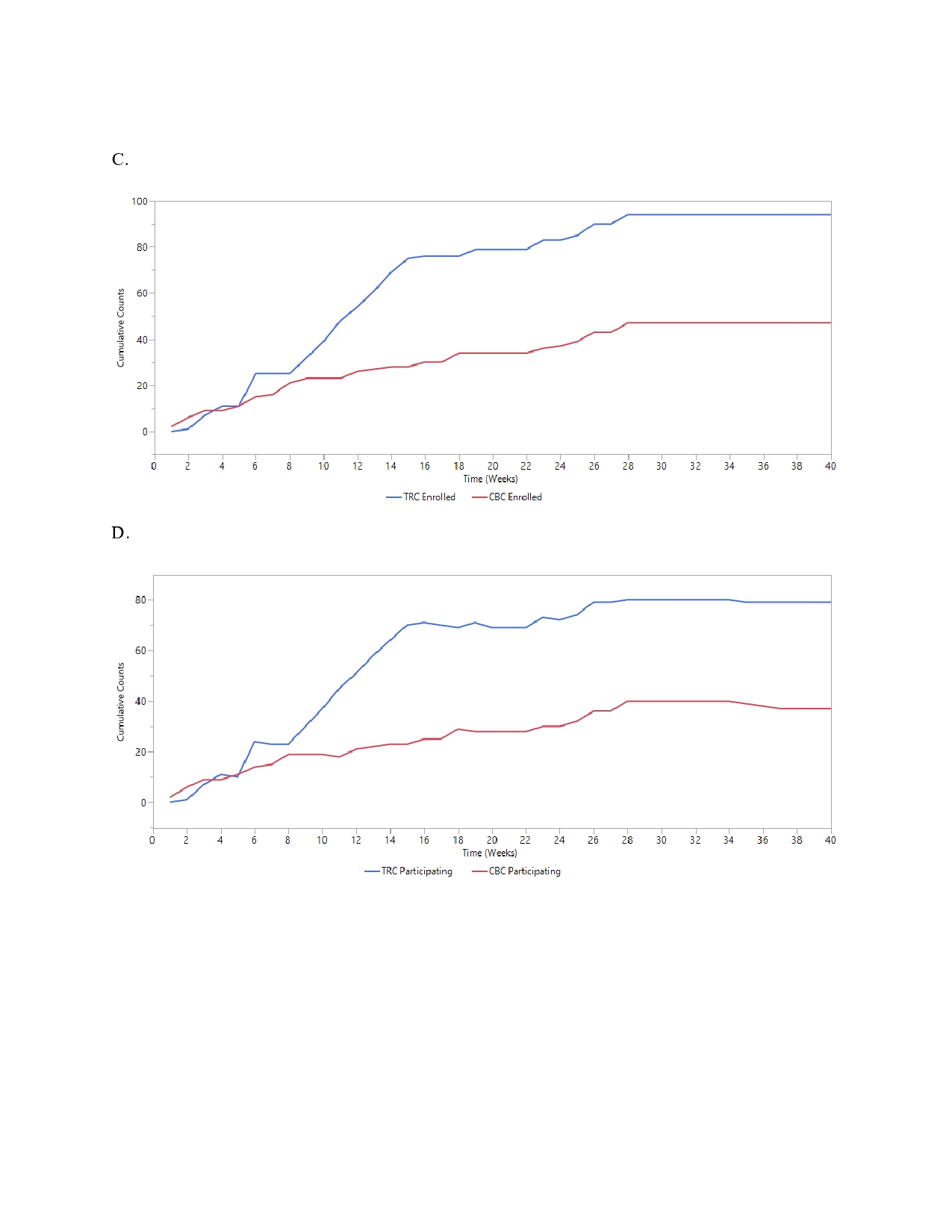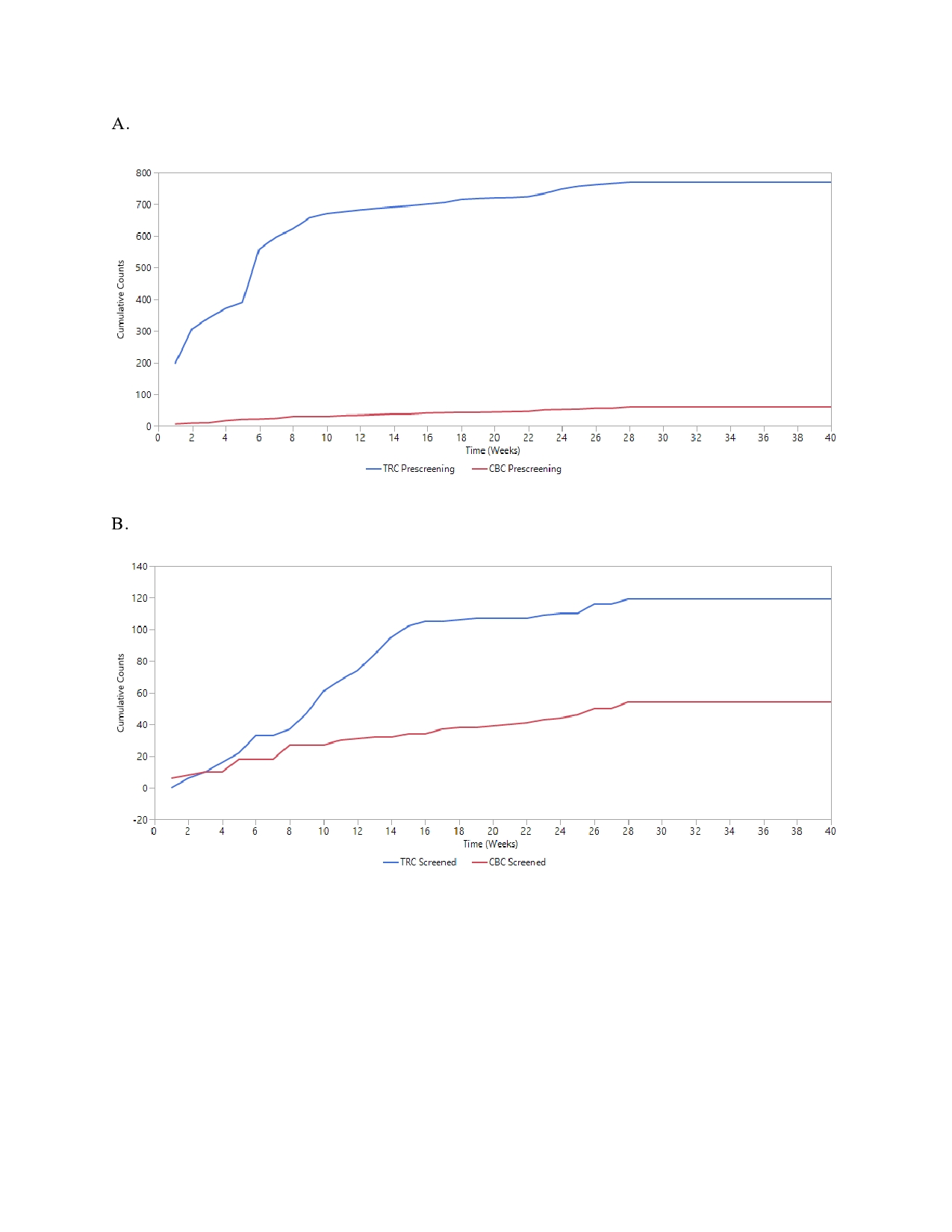Session Information
Session Type: Poster Session C
Session Time: 9:00AM-11:00AM
Background/Purpose: There is a paucity of randomized, controlled clinical trials in myositis. Subject enrollment and retention in clinical trials for this rare, heterogeneous disease has always been a major challenge. There is an urgent need for innovative recruitment and clinical trial strategies including a virtual and remote approach. Our aim was to compare the effectiveness of recruitment, enrollment and retention of a traditional center-based cohort (CBC) to a novel remote tele-research cohort (TRC) using state-of-the-art tele-medicine, wearable devices and mobile app.
Methods: The TRC was recruited remotely across the U.S. using a mobile app/website while the CBC was derived from two myositis centers in a prospective observational myositis study. Subjects in both cohorts were followed concurrently and longitudinally for 6 months using the same protocol including inclusion criteria, study visits and data collection. However, the TRC and CBC had 2 different recruitment methodologies: online/social media recruitment in the TRC with the help of myositis patient support organizations (The Myositis Association, Myositis Support & Understanding) vs. traditional clinic-based recruitment in the CBC which included directly approaching myositis clinic patients or traditional advertisement to local/regional subspecialists. Study visits included a baseline and 6-month physician evaluation conducted through telemedicine in the TRC with monthly patient-driven data collection through a mobile app/website. Conversely, the CBC utilized conventional in person clinic visits and monthly data collection on paper forms or tablets. The rates and success of prescreening, screening, enrollment and retention were compared between 2 parallel cohorts with competitive enrollment using time to event, t-test and Chi-square analysis.
Results: The TRC enrolled 94 subjects compared to only 47 in the CBC during the recruitment period of 40 weeks. Demographics and disease in both cohorts were similar (table 1). In the TRC, 700 subjects completed prescreening on the app or website, and 626 (81%) met preliminary eligibility. In comparison, 205 patients were approached for prescreening in the CBC but only 60 agreed to undergo prescreening of which 56 (93.3%) met preliminary eligibility. During the enrollment process, 120 TRC participants were screened by physician review of medical records leading to 94 (78%) being enrolled, while only 54 CBC subjects underwent screening and 47 (87%) were enrolled. The cumulative number and rate of prescreening, screening and enrollment was faster and 2-3 folds higher in the TRC compared to CBC over the same recruitment period (Figure 1). Prescreen to preliminary eligibility as well as screen failure rates were similar in both cohorts. Retention rates were similar in both cohorts, with only 14 (15%) drop outs in the TRC vs. 7 (15%) in the CBC.
Conclusion: Recruitment and enrollment for a virtual TRC was far superior to a traditional center-based approach, with similar screen failure and retention rates in this observational study. Further, the TRC recruitment techniques using social media and online approaches for a virtual TRC were surprisingly efficient and should be considered for rare diseases such as myositis.
 (A) Pre-screening, (B) screen, (C) enrollment, and (D) active participation rates in the TRC vs. CBC
(A) Pre-screening, (B) screen, (C) enrollment, and (D) active participation rates in the TRC vs. CBC
 Table 1. Demographics and disease subsets in both tele-research cohort (TRC) and center based cohort (CBC).
Table 1. Demographics and disease subsets in both tele-research cohort (TRC) and center based cohort (CBC).
To cite this abstract in AMA style:
Moghadam-Kia S, Oddis C, Venturupalli S, Mahajan S, Scaramangas Plumley D, Ascherman D, Neiman N, Onelangsy F, Koontz D, Goldby-Reffner K, Dzanco S, Zhu L, Aggarwal R. Recruitment Rates of Virtual Remote Research (Tele-Research) in Myositis [abstract]. Arthritis Rheumatol. 2020; 72 (suppl 10). https://acrabstracts.org/abstract/recruitment-rates-of-virtual-remote-research-tele-research-in-myositis/. Accessed .« Back to ACR Convergence 2020
ACR Meeting Abstracts - https://acrabstracts.org/abstract/recruitment-rates-of-virtual-remote-research-tele-research-in-myositis/

